- Home
- Catherine Coulter
Bombshell Page 3
Bombshell Read online
Page 3
“There, that’s better, isn’t it? I don’t want you to worry about anything. Keep still until your insides settle.”
“Could I have a sip of water?”
Ruth set a plastic straw on her tongue. “Not too much, now; that’s right.”
Delsey took a single sip, felt her stomach twist, then, thank the Good Lord, it quieted down. “I’ve heard of you, Agent—”
“Call me Ruth.”
“Okay, Ruth. Most everyone at Stanislaus has heard of you, Ruth, you and your husband, Sheriff Noble. I heard a Stanislaus student was murdered, then the director’s secretary.”
“Yes. We got it sorted out.”
“A lot of the women at Stanislaus think Sheriff Noble’s hot—some of the guys do, too. It will get even worse now that Griffin’s in town. When the women get a load of him, there’ll be fistfights.”
Ruth smiled and patted her hand. “You might be right. He’s quite a package.”
“Poor Griffin, he has to deal with females up to about eighty coming on to him. Maybe the older women want to mother him. Or not, hard to say.”
Griffin came through the door with Nurse Morsi, who checked Delsey’s pulse, put a stethoscope to her chest, and said “good” several times. Ruth told her about Delsey getting sick. Instead of a magic med, Nurse Morsi produced a saltine cracker. “Chew on this, Delsey. Go slow, that’s right, a bit at a time. It will help with the nausea.”
Delsey chewed on the cracker. Her stomach didn’t complain. “Thanks. That’s good.”
“A flash of nausea is common with a concussion; nothing to worry about. It’s already gone, right?”
Delsey took the last bite of cracker, waited for a moment, and nodded.
“Good. If the nausea comes back we can give you an injection to calm things down. You had quite a bit of alcohol last night that showed up on your blood tests. That can’t be helping. Right now I want you to lie still, have some more water and saltines when you feel like it, and let your body reboot.”
Nurse Morsi left after a long look at Griffin, one Delsey recognized as saying, How about I buy you a drink? Delsey focused on her brother. “Griffin, I don’t understand. What are you doing here?”
“I was on my way to my new job in Washington and planned on stopping here to surprise you.”
“Did you see Jennifer?”
“Yes, she’s fine, made me the best waffles on the planet.”
Delsey said to Ruth, “Jennifer is an incredible cook. Believe it or not, she’s never wanted to be anything but Griffin’s friend.”
Griffin didn’t have the heart to tell her Jennifer was gay.
Delsey said, “She owns Jenny’s Café over in Gaffer’s Ridge, an hour or so northwest of here. I visited her this past fall and put on three pounds.”
Griffin knew she was being chatty; she always was when she was scared. It was a wonder she could manage it. He bent down and lightly laid his fingers over her mouth. “Don’t worry about all this, Dels, I’ll do all the worrying for you—or, better yet, we’ll let Ruth carry the worry load.”
“Not a problem,” Ruth said and began rubbing the back of Delsey’s hand again.
Delsey sighed. “It’s probably just as well Jenny’s gay. If she wanted to marry you, Griffin, you’d gain a hundred pounds.”
So she knew, did she? “Nah, I’ve got more willpower than you.”
“Do you know, Ruth,” Delsey said, “whenever we were sick, our grandmother would rub our hands and she’d sing that beautiful aria from Madame Butterfly, ‘Un Bel Dì,’ to us. You don’t have to sing, Griffin.”
Griffin said, “No, I won’t. Is the hand rubbing working?”
“It’s a good distraction.”
Ruth wanted to ask Delsey Freestone what had happened, but she decided Griffin should take the lead. She said only, “It’s snowing, bunches of big flakes drifting down. I’ll bet my two stepsons are sledding and snowboarding with half the kids in town at Breaker’s Hill.”
“I sledded at Breaker’s Hill three days ago,” Delsey said. She closed her eyes. Ruth thought her head must be really hurting.
Delsey turned very slightly to look at her brother. “You’ve got to get married, Griffin, and have kids. Imagine how gorgeous they’ll be. Maybe they’ll be lucky and have some of my talent.”
“Back at you. Maybe your kids will have some of my talent.”
Even though her head hurt and she wished she had another saltine to keep her stomach off the ledge, Delsey smiled. “I’ve gotta admit, your talent’s more interesting than mine. I mean, you’ve always simply known things no one else knew. I’ve always had to run into things, head-on, like the time that boy snatched Mrs. Garland’s tote bag and ran right into me when I came around the corner.” She closed her eyes again, but there was a small smile on her mouth. “At least Mrs. Garland got her tote back.”
He said, his voice very precise, “I meant my talent for solving crimes.”
“Yeah, yeah. Griffin never wants to talk about it, Ruth, but Miss Aladonna not only sang, she was psychic, and she swore that was her biggest talent and she passed it on to him.”
Ruth said, “Did Miss Aladonna speak to spirits?”
“No, like Griffin, she simply knew stuff there was no way she could know. She—”
“Enough of that, Delsey. I told you, I was talking about my talent as a cop. I see patterns sometimes, that’s all, look at puzzle pieces and can many times see how they all fit together. You’re looking better, you’re arguing with me, so let’s get down to business here, if you can do it without throwing up again.”
Delsey said to Ruth, “I told you he never wants to talk about it.”
Ruth only smiled.
“That’s enough, Delsey. You need to tell Ruth and me what happened. If you feel sick again, you stop talking, okay?”
Delsey felt a twist of nausea and swallowed. “Yeah, I can do this.” She swallowed again. “I went to a party over at Professor Rafael Salazar’s house.” She stopped cold, and her breathing picked up, suddenly hard and fast.
Ruth leaned close. “No, don’t panic, Delsey. Relax. What upset you?”
“I can’t seem to remember anything after I parked my Spyder at Professor Salazar’s house—there’s nothing else until I was here with you.”
Griffin said matter-of-factly, “Not remembering is common with a bad concussion. Now, you went to a party at this Professor Salazar’s house? You mean Rafael Salazar? The classical guitarist? I’ve got a couple of his CDs. He’s very good.”
“That’s him. He’s better than good, he’s brilliant. I’ve read he was a child prodigy.”
“So why is he at Stanislaus?”
“He’s a visiting professor, brought here by—this is really cool—his twin brother, who happens also to be the director of Stanislaus, Dr. Elliot Hayman.”
“I didn’t know he had a twin,” Griffin said. “And it’s Dr. Elliot Hayman? I also have some of his CDs playing Bach. Okay, I want to hear more about him, too, but first tell me more about Rafael Salazar.”
Delsey said, “I’ve never seen technique like his on the classical guitar. His fingers are a blur. His students adore him, particularly the women, and it’s not only his musical ability. He throws great parties and drinks his weight in vodka martinis, but what he excels at is dazzle and seduction, which he does with great regularity.” She grinned. “He’s with Gabrielle DuBois right now. She’s a voice student. I think he made a mistake—he let it out he thought Gabrielle sings like Edith Piaf, and believe me, she doesn’t let anyone forget it.”
“Wait a second,” Griffin said. “If he and Hayman are twin brothers, why do they have different last names?”
“All I know is they were separated as boys; Mom took one to Spain, married again, and changed his name to the new hubby’s name, Salazar, and Dad kept the other one with him h
ere in the States.”
“Okay, back to the party at Salazar’s house.”
“I remember there were lots of people and cars and the music blaring out even though the windows were closed. Then it’s a blank.”
“Someone hit you on the head at your apartment, Delsey. We’re trying to figure out who.” Ruth stopped in her tracks when a woman rushed into the room, bundled up to her eyebrows, pulling off a wool cap and sending a long, thick dark braid flying down her back. It was Anna Castle, a Stanislaus student and part-time waitress at Maurie’s Diner. Ruth liked Anna, who’d come to Stanislaus at the beginning of the semester in September. She was always smiling and welcoming to her customers, knew all their likes and dislikes, and she always had time to chat with everyone. Ruth said quickly, “Hi, Anna, it’s okay. Delsey’s all right,” but Ruth saw all her attention was focused on Delsey. Since they both attended Stanislaus, she supposed they’d know each other, but this was more, this was real caring, real concern.
Delsey tried to sit up but couldn’t manage it. She held out her hand. “Anna, I’m okay.”
Griffin was up, his hand on his gun. “How did you get in here? Anna who? Who are you?”
“Griffin, it’s all right. This is Anna, a great violinist and my best friend.”
Griffin eyed the woman bundled up in a bright green ski jacket and wearing black knee boots over tight black jeans. He saw she was staring at his hand resting on the SIG clipped to his belt. He started to back off a bit, but then she walked up to him and smiled, her hand out. “I know you’ve got to be Delsey’s brother, since the two of you look like mirrors of each other. I’m Anna Castle, and like she told you, I’m her best friend. You’re the FBI agent, right?”
He nodded, never taking his eyes off her face. Dark, dark eyes, nearly black, and that voice of hers dripped as slow and smooth and rich as the syrup he’d poured over his waffles at Jenny’s.
“Yes, I’m FBI Agent Griffin Hammersmith, Delsey’s brother. It appears you already know Ruth.”
“Hi, Ruth. I think Delsey might be safe now, with two cops standin’ over her bed.” She stepped around him, and lightly laid her palm against Delsey’s white cheek. “Sweetie, you don’t look so hot. Can you tell me what happened?”
Griffin said, “There was a guard already outside her room when I came back in. How’d you get past him?”
Anna Castle turned, smiled at him. “Everybody eats at Maurie’s Diner. Do you know, Ruth, that Deputy Claus likes mayonnaise on his hamburgers?”
Delsey said, “Griffin, it’s okay, really, everybody knows and likes Anna.”
Anna looked at Griffin. “May I speak to your sister?”
“Don’t make her laugh,” he said. “It might bust her head open.”
“That might be tough,” Delsey said. “Anna’s funny.”
“Okay, sweetie, here’s the deal,” Anna said. “Rumors are flyin’ all over town ever since Henry started talkin’ to people at the diner about how you were naked and the paramedics were all guys, about how there was blood in your bathtub and someone bein’ there with you. That’s only one of them, admittedly the most interestin’. Believe me, everybody was wild to hear the details. You never mentioned a lover. You didn’t pick one up without tellin’ me, did you?”
Delsey laughed, squeezed her eyes shut at the shaft of pain slicing through her head. “You weren’t supposed to be funny, Anna.”
“I’m sorry. Here, this will help.” Anna smoothed out a dampened hand towel and lightly laid it on Delsey’s forehead. She leaned close. “That better?”
“Yeah, it is. Now, listen, I may have picked up a lover last night for all I know. I don’t remember. It’s like hitting a blank wall. Why did Henry come down to my apartment?”
“He said it was really late and he was hearin’ bumps and bangs, and then he heard you scream so he called 911. He stitched up his courage and went in your place and found you on your bathroom floor, lyin’ naked—he always lowers his voice and whispers it.” She shrugged, smiling. “You know Henry.”
She turned to Griffin. “I’m very glad you’re here. Your timin’ in Maestro is like a miracle. You guys have different last names. Why?”
“She married a loser crook, kicked him to the curb, but kept his last name because she said it made the muses of music swarm into her head. Delsey said you play the violin?”
“Actually, since I grew up in the Louisiana boondocks, bayou country, I played the fiddle first. I could still make you want to polka until you fall in a heap and shout yourself hoarse.” She turned back to Delsey. “You need to get your brain back together and tell us what happened. Exactly.”
West Potomac Park
The Lincoln Memorial
Washington, D.C.
Saturday morning
“Keep everyone back!” Metro Detective Ben Raven yelled to the three WPD officers as he knelt beside Savich at the broken body of a young man. It was hard to tell how long he’d been dead because he was frozen stiff. There was a small black halo of frozen blood around his smashed head. Did that mean he hadn’t died here?
It wasn’t ten o’clock yet and had been snowing hard since early that morning, so there was barely a trickle of traffic. Yet there were already at least twenty gawkers bundled up in their coats looking in on them, attracted by the yellow crime tape and all the police activity.
Ben told Savich a Park Service employee had found the body only an hour before and called 911. When Ben had realized the body was on federal land, he’d gotten hold of Savich as he was babying his Porsche through the ice-covered streets from Georgetown to the Hoover Building.
Savich looked up at the solitary figure of Abraham Lincoln, felt a familiar awe and sadness for the man, wondering as he often did whether Lincoln would have managed to bring the country together again if he hadn’t been assassinated. Savich looked away from the nineteen-foot marble statue and back down at the frozen, broken body. He was a boy, really, no more than twenty, Savich thought, lying close to Lincoln’s statue, one frozen arm flung out toward Lincoln’s chair. Savich knelt down beside him. Why was he naked? Why had his killer added this indignity? Savich found himself studying what remained of his young face. There was something about him that looked familiar. Who was he?
“No ID anywhere around him?” Savich asked.
Ben Raven shook his head. “Nothing, no clothes, no nothing at all.”
His arms and legs were sprawled at odd angles, as if he’d been thrown or fallen from a great height. Savich looked up sixty feet to the grilled ceiling. “We’ve got to check with the Park Service, see about access.” Had someone managed to haul the young man up sixty feet and throw him from the ceiling above Lincoln’s head? He didn’t see anything broken or unusual about the grills.
“Ben, does he look familiar to you?”
Detective Ben Raven studied the face. “Hard to tell, he’s so messed up.” He looked up quickly, said in a sharp voice, hard and clear as glass, “Hey, buddy, back off. No photos. This is a crime scene.”
Savich wondered how many photos had already been snapped with cell phones or even with zoom lenses and uploaded to YouTube and Facebook, emailed to friends and family and The National Enquirer. Crime scenes in living color were everywhere now. It made their jobs harder.
“Ben,” Savich said, “look again.”
Ben again studied the young man’s face. “No, I don’t recognize him. I’ve got to say he wasn’t dressed for the weather. Looks to me like most every bone in his body is broken. You think he was thrown from up there?” He jerked his head upward.
They both turned when the four-person FBI forensic team came up the steps of the memorial, with them Dr. Ambrose Hardy, the FBI medical examiner from Quantico.
Hardy was as skinny as his favorite fishing pole, his face covered with a thick black beard, like some underfed mountain man. The few patches of gray in his beard
added to the effect.
“Savich,” Dr. Hardy said, not looking at him but down at the frozen body. “Not something I like to see on a beautiful Saturday morning.” He knelt down beside the boy.
“Hey, Dillon, you look both hot and cold. Isn’t it sad how that works?” He grinned up at Ms. Mary Lou Tyler, supervisor of the FBI forensic team. She was tough and smart, and though she was his mom’s age, she was still a seasoned flirt. She knelt down beside Dr. Hardy. “Geez, this isn’t how I planned to spend my Saturday morning, either, Ambrose.”
“None of us did,” Savich said, turned, and saw Sherlock running up the steps toward him. He said, “Ben, do you want to be in on this?”
Ben looked back at the thin shattered body. “Yeah,” he said, “I do. Let me take you to the guy who found him. He’s a longtime employee of the Park Service, name’s Danny Franks. I told one of my guys to keep him warm in his squad car.”
Sherlock had her creds out so the cops in her path parted easily as she walked quickly to Savich and went down on her knees beside Mary Lou Tyler and Dr. Hardy. The two women spoke quietly. Savich watched her take in her surroundings, carefully, completely. It was her special gift, a kind of magic that happened when she re-created a crime scene in her mind. Sherlock said, “This was staged for effect, to focus public attention. Leaving him in front of Lincoln is a touch of drama to serve that purpose. A good choice, really.
“He was dead when his killer tossed him down here. You already realized there’s not enough blood with all his injuries for him to have died here.” She looked up. “So how could this work? I can’t see the killer climbing up access stairs sixty feet up, the boy over his shoulder. It had to be somewhere else. Actually, I doubt there’s any access to the ceiling.”

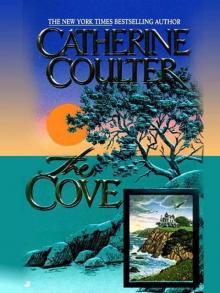 The Cove
The Cove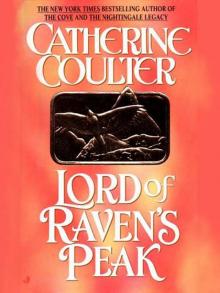 Lord of Raven's Peak
Lord of Raven's Peak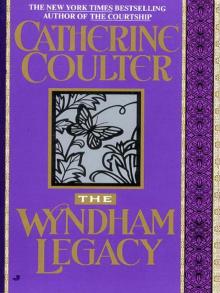 The Wyndham Legacy
The Wyndham Legacy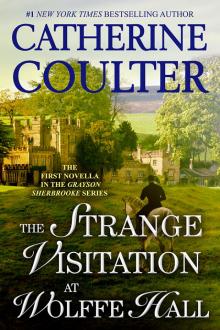 The Strange Visitation at Wolffe Hall
The Strange Visitation at Wolffe Hall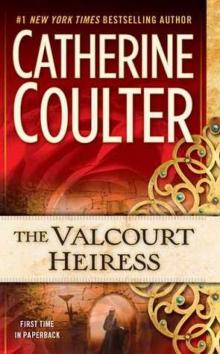 The Valcourt Heiress
The Valcourt Heiress Bombshell
Bombshell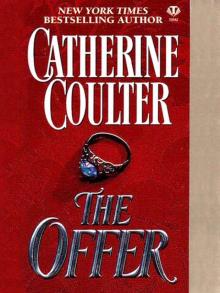 The Offer
The Offer The Edge
The Edge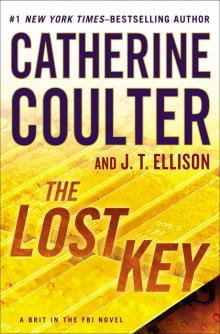 The Lost Key
The Lost Key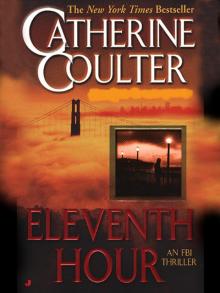 Eleventh Hour
Eleventh Hour Blindside
Blindside Devil's Daughter
Devil's Daughter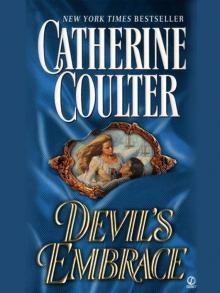 Devil's Embrace
Devil's Embrace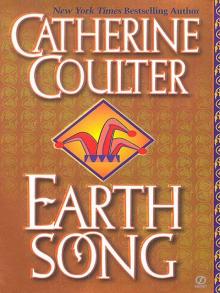 Earth Song
Earth Song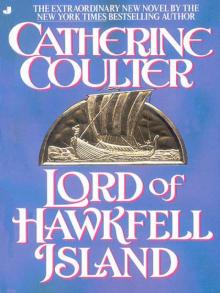 Lord of Hawkfell Island
Lord of Hawkfell Island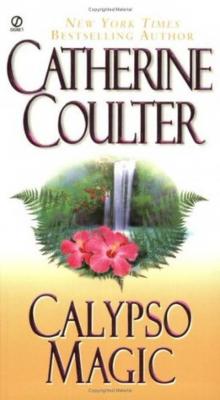 Calypso Magic
Calypso Magic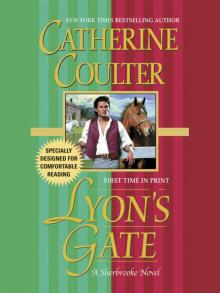 Lyon's Gate
Lyon's Gate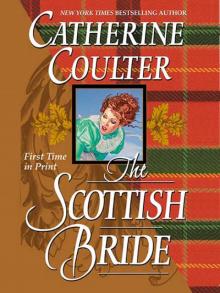 The Scottish Bride
The Scottish Bride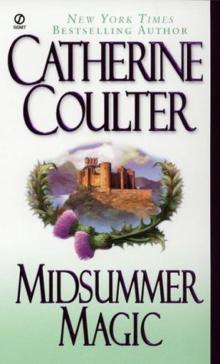 Midsummer Magic
Midsummer Magic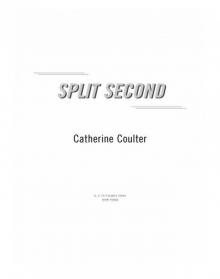 Split Second
Split Second Enigma
Enigma Blowout
Blowout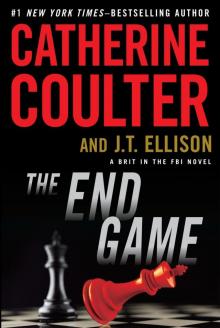 The End Game
The End Game Double Take
Double Take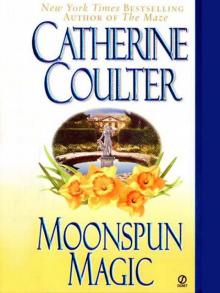 Moonspun Magic
Moonspun Magic The Courtship
The Courtship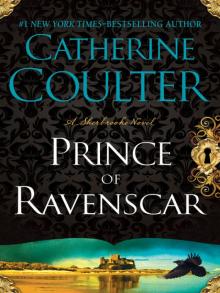 Prince of Ravenscar
Prince of Ravenscar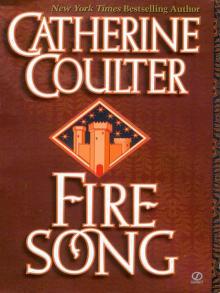 Fire Song
Fire Song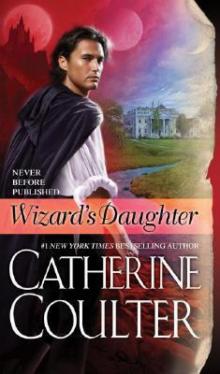 Wizard's Daughter
Wizard's Daughter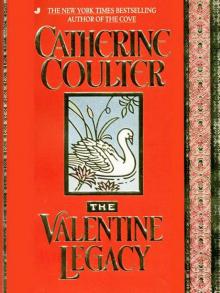 The Valentine Legacy
The Valentine Legacy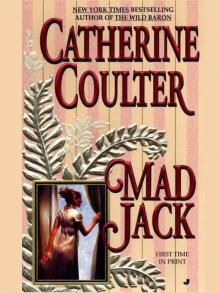 Mad Jack
Mad Jack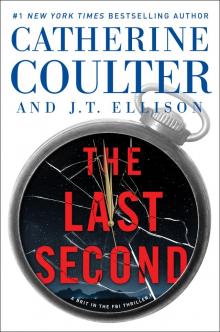 The Last Second
The Last Second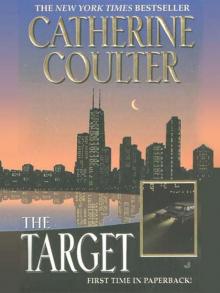 The Target
The Target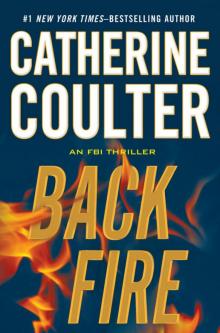 Backfire
Backfire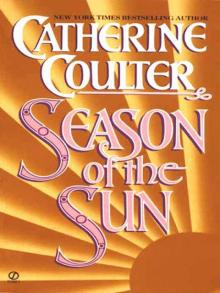 Season of the Sun
Season of the Sun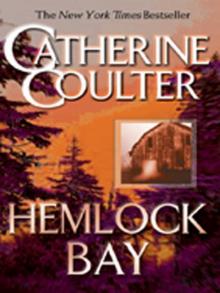 Hemlock Bay
Hemlock Bay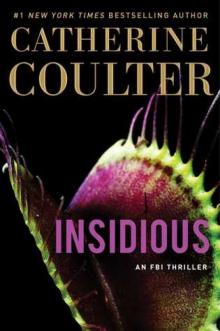 Insidious
Insidious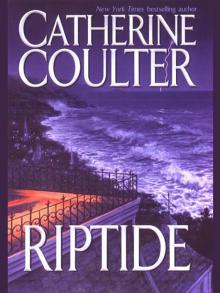 Riptide
Riptide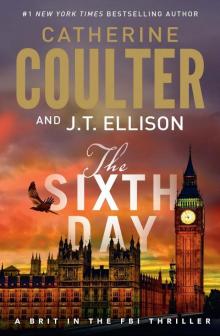 The Sixth Day
The Sixth Day Secret Song
Secret Song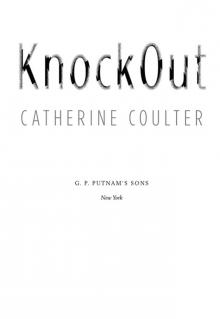 KnockOut
KnockOut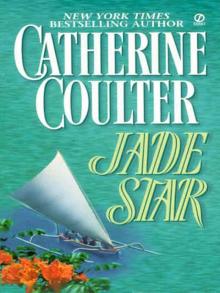 Jade Star
Jade Star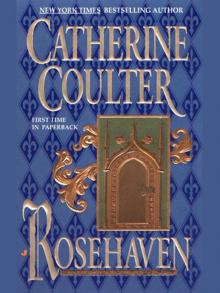 Rosehaven
Rosehaven The Hellion Bride
The Hellion Bride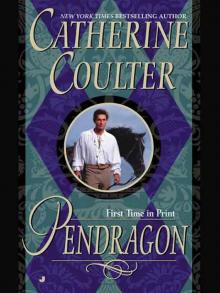 Pendragon
Pendragon Vortex
Vortex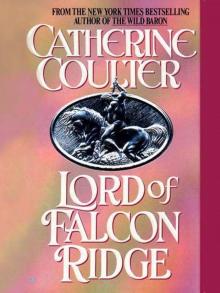 Lord of Falcon Ridge
Lord of Falcon Ridge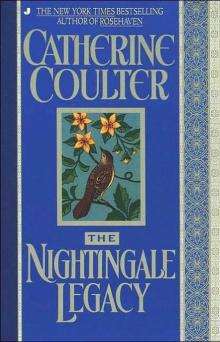 The Nightingale Legacy
The Nightingale Legacy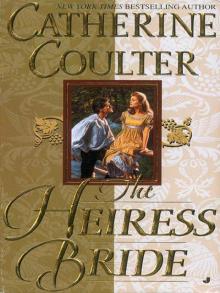 The Heiress Bride
The Heiress Bride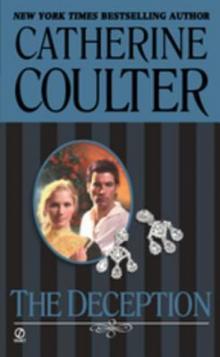 The Deception
The Deception The Maze
The Maze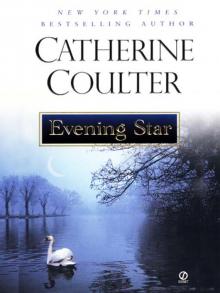 Evening Star
Evening Star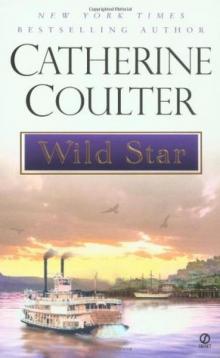 Wild Star
Wild Star The Final Cut
The Final Cut Paradox
Paradox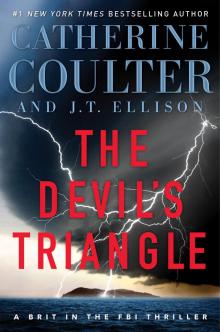 The Devil's Triangle
The Devil's Triangle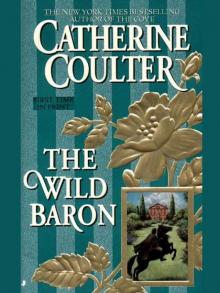 The Wild Baron
The Wild Baron Point Blank
Point Blank Labyrinth
Labyrinth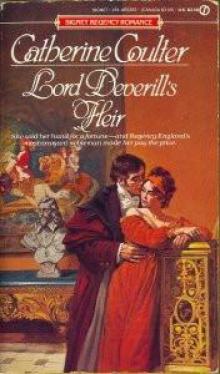 Lord Deverill's Heir
Lord Deverill's Heir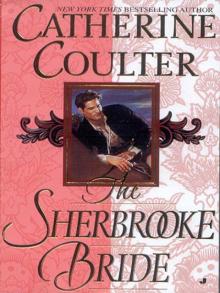 The Sherbrooke Bride
The Sherbrooke Bride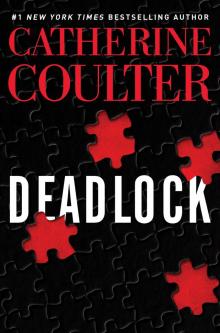 Deadlock
Deadlock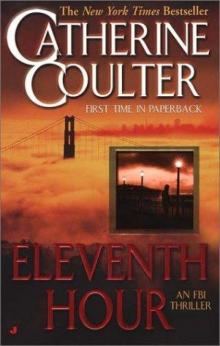 Eleventh Hour f-7
Eleventh Hour f-7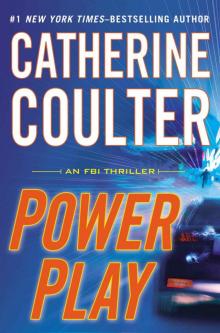 Power Play (An FBI Thriller)
Power Play (An FBI Thriller)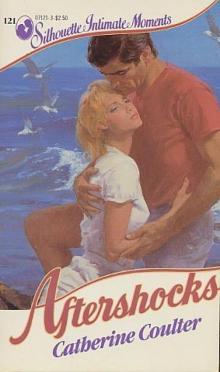 Aftershocks
Aftershocks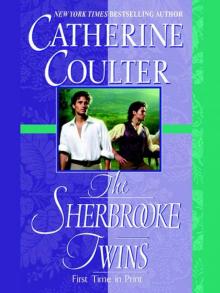 Sherbrooke Twins tb-8
Sherbrooke Twins tb-8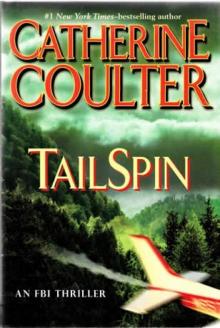 Tail Spin ft-12
Tail Spin ft-12 The FBI Thrillers Collection
The FBI Thrillers Collection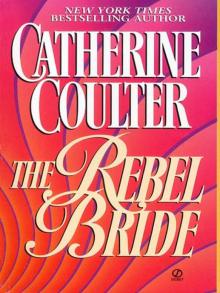 The Rebel Bride
The Rebel Bride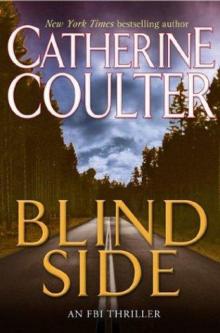 Blindside f-8
Blindside f-8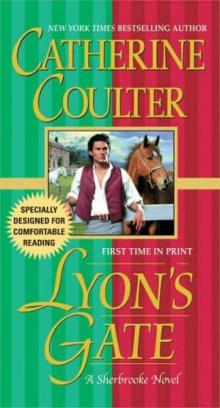 Lyons Gate tb-9
Lyons Gate tb-9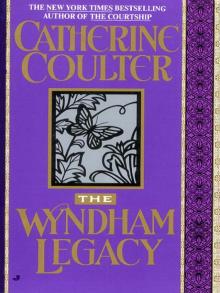 Wyndham Legacy
Wyndham Legacy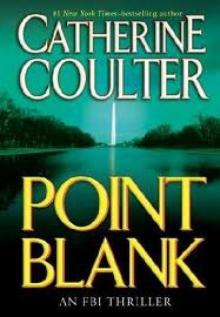 Point Blank f-10
Point Blank f-10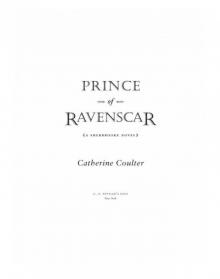 The Prince of Ravenscar
The Prince of Ravenscar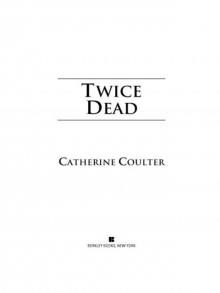 Twice Dead
Twice Dead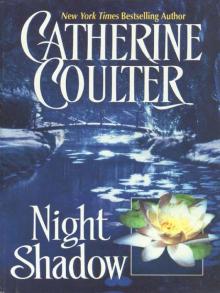 Night Shadow
Night Shadow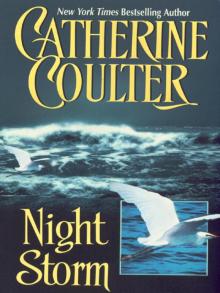 Night Storm
Night Storm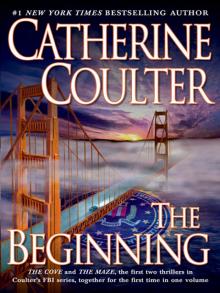 The Beginning
The Beginning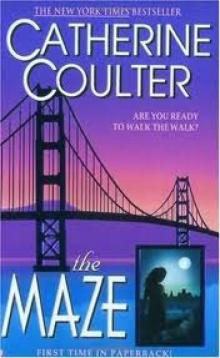 The Maze ft-2
The Maze ft-2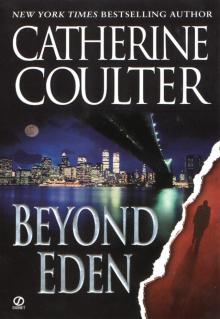 Beyond Eden
Beyond Eden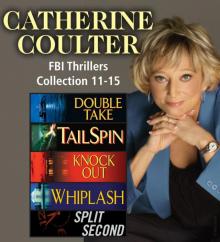 The FBI Thrillers Collection: Vol 11-15
The FBI Thrillers Collection: Vol 11-15 FALSE PRETENSES
FALSE PRETENSES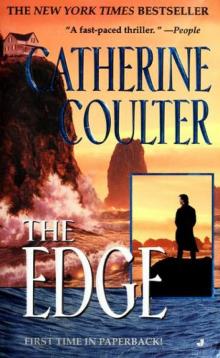 The Edge f-4
The Edge f-4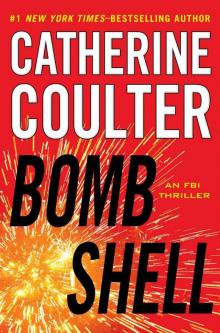 Bombshell (AN FBI THRILLER)
Bombshell (AN FBI THRILLER)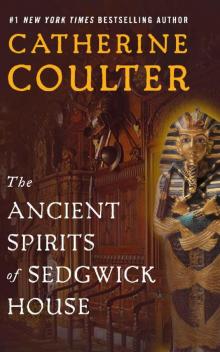 The Ancient Spirits of Sedgwick House (Grayson Sherbrooke's Otherworldly Adventures Book 3)
The Ancient Spirits of Sedgwick House (Grayson Sherbrooke's Otherworldly Adventures Book 3)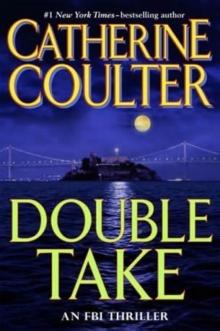 Double Take ft-11
Double Take ft-11 The Heir
The Heir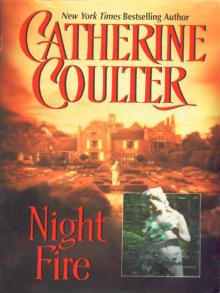 Night Fire
Night Fire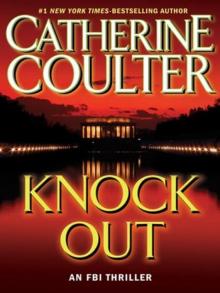 KnockOut ft-13
KnockOut ft-13 Hemlock Bay f-6
Hemlock Bay f-6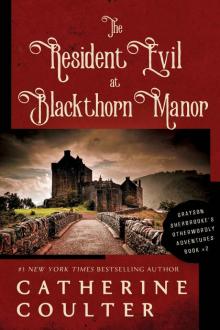 The Resident Evil at Blackthorn Manor (Kindle Single) (Grayson Sherbrooke's Otherworldly Adventures Book 2)
The Resident Evil at Blackthorn Manor (Kindle Single) (Grayson Sherbrooke's Otherworldly Adventures Book 2)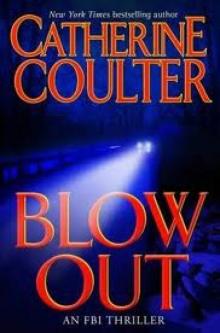 Blowout ft-9
Blowout ft-9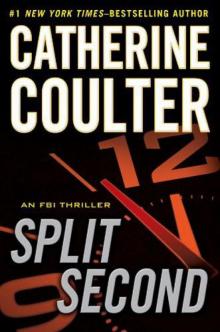 Split Second f-15
Split Second f-15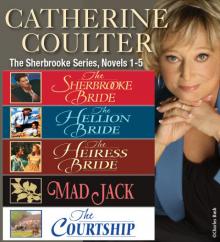 The Sherbrooke Series Novels 1-5
The Sherbrooke Series Novels 1-5 Impulse
Impulse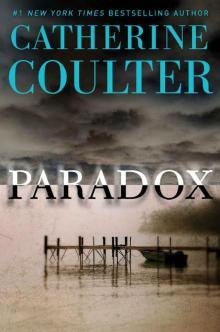 Paradox (An FBI Thriller Book 22)
Paradox (An FBI Thriller Book 22)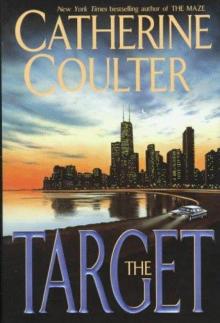 The Target f-3
The Target f-3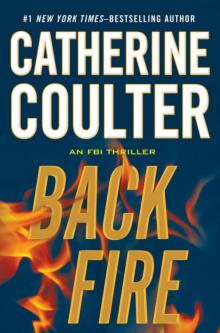 Backfire fst-16
Backfire fst-16 Born To Be Wild
Born To Be Wild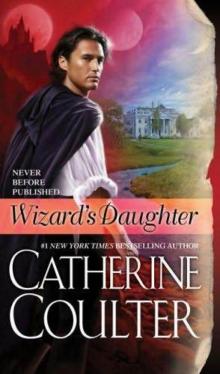 Wizards Daughter tb-10
Wizards Daughter tb-10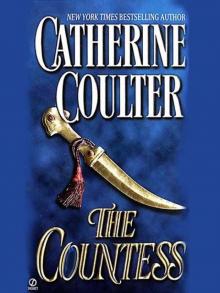 The Countess
The Countess